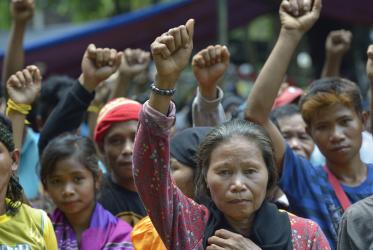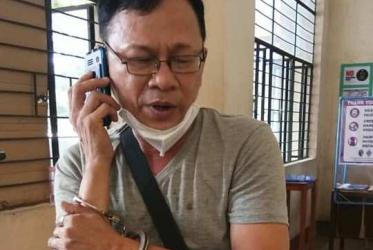Displaying 1 - 20 of 21
Churches should use their voice on climate change
26 February 2020
CCIA meets in Brisbane with focus on Pacific regional priorities
19 February 2020
WCC condemns massacre of farmers in Philippines
12 April 2019
All pilgrim routes lead to COP24
11 December 2018
#WCC70: A prayer about health and healing
20 July 2018
Consultation considers right to food in context of climate change
15 December 2015
Land rights focus of panel discussion
17 November 2015
Climate pilgrimage toward COP21 pauses in Geneva
05 November 2015
WCC Executive Committee speaks out on migrant crises
12 June 2015











